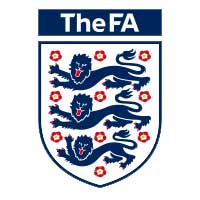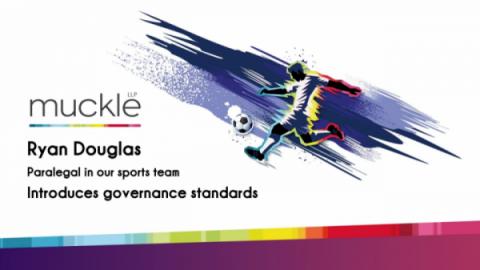
Related Downloads
FA Bitesize Guide introduction - Governance standards
Ryan Douglas, paralegal in our sports team, introduces our FA guide on governance standards.
Watch VideoAll VideosTo help your club stay on track and maintain outstanding governance standards, we’ve created this simple guide.
The benefits of good governance
Some of the positive impacts of strengthening your internal governance can be:
- It’s easier to attract and retain staff/volunteers and members.
- Your financial performance is strengthened.
- Trust and confidence within your club builds, and the culture therefore improves.
- Risks are more easily identified and managed.
- Legal and regulatory compliance becomes easier.
Key elements of good governance
Some key elements of good governance include:
1. Purpose
Your committee/board members need to understand what your club has been set up to achieve i.e. its purpose. That purpose should underpin all decisions made relating to the operation of the club.
The purpose should be clearly set out in your club’s governing document (i.e. your rules, constitution or articles of association). It’s important to check that it is still relevant and, if not, update it.
Your committee/board should never lose sight of the club’s purpose. This is especially important for clubs with a special tax status (such as charitable or community amateur sports club (CASC) status) which are subject to strict eligibility and legal requirements.
2. Getting the right people
Your committee/board is ultimately responsible for making sure that your club is sustainable and successful, so they must work together as a team.
Getting the composition of your committee or board right in terms of skills and experience, time commitment, and enthusiasm is essential. Although we recognise this is easier said than done, as committee or board members are typically volunteers.
Remember that if your club has charitable or CASC status, there are strict requirements on who can sit on your committee/board. The Charity Commission has useful guidance on this, as does HMRC.
For further information on "Leadership", see our separate bitesize guide.
3. Values, behaviour and culture
Your committee/board must act with integrity and in line with the values and spirit of the sport. It should also ensure that all relevant laws, FA guidance, regulations and codes of conduct are followed, and must take swift steps to address inappropriate behaviour at the club.
Your committee/board members should lead by example, communicate openly and effectively with club members and stakeholders (e.g. sponsors) and promote a positive ethos and culture at your club.
4. Effective decision-making
Effective decision-making at your club is key. In other words, decisions should be made in a timely manner, at the right level, and always with the club’s purpose in mind. Decision makers need to be as informed as possible on the relevant issues. They should also identify and weigh up any risks and opportunities arising and consider how to best deal with them.
Healthy, respectful debate is encouraged at committee/ board meetings. All committee/board members should actively participate in meetings and have their opinions heard. However, once a decision has been made, all members of your committee/board should stand by it (even if some disagree with the decision). They should all maintain a united front.
For further details on "Leadership" and "Risk Management", you can access our separate bitesize guides.
5. A game for all
The FA knows that football has the power to unite communities, improve lives and inspire positive change, on and off the pitch. So, it’s committed to creating a game free from discrimination for all, and your club should do the same.
Your club should implement effective policies and procedures to boost representation, drive inclusion and tackle discrimination.
Speak to our team
To speak to a member of our friendly sports team, please contact us at [email protected] or on 0191 211 7799.
get in touch






